

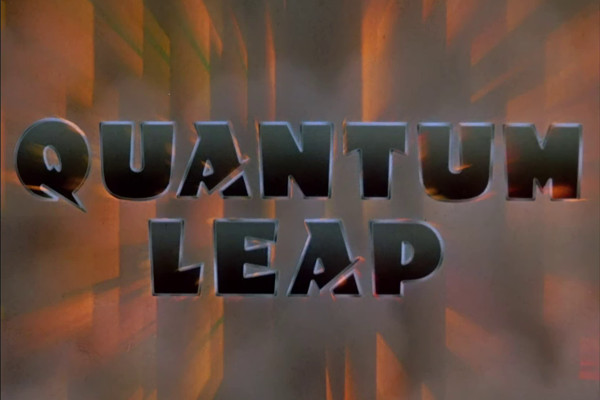
The entire series is now available to buy on BluRay from Amazon. In the meantime, please join me as I rank the second season from worst to best...
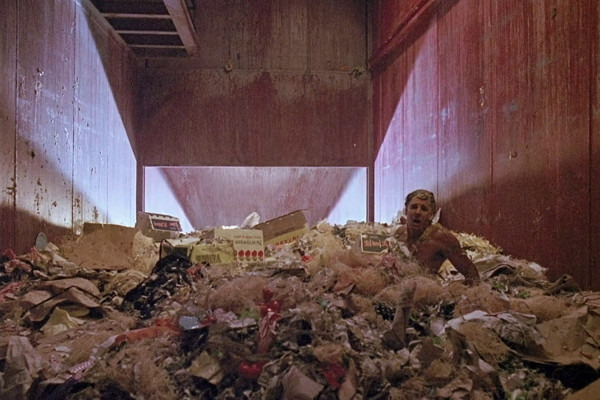
Although no season two story quite falls into pastiche like season one's Play It Again, Seymour, there's still a gulf in how "believable" characters are in some of these episodes. Sea Bride features caricatures in the place of real people, and broad farce in the place of genuine wit.
A tale about Sam trying to rekindle romance on a cruise ship, it involves a gangster called "Vinnie" and upper class English fathers decking Sam with "comic" effect.
Possibly the only notable moment in this penultimate episode is that Sam asks what happened to Al's true love, a question that would be answered in the following week's M.I.A.... a rare example of this loose anthology show having some serious continuity.
Perhaps the oddest part of this story is the almost non-sequitur of an unseen Margaret Thatcher being called to the bridge. Set in 1954, the future Prime Minister of the UK would have been 28 at the time and just beginning her political career... Sam missed a chance to throw her into the garbage chute that was launched into the sea. Oh boy!
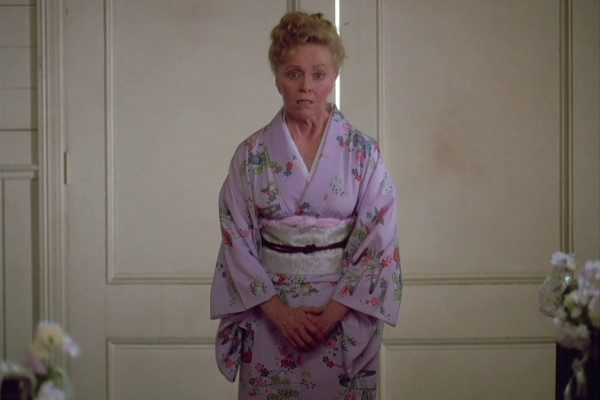
The Americanization of Machiko is far, far from the greatest episode of season two, but it may well be the most flat-out entertaining. Unwittingly offensive on so many different levels, Sam's insistence that his new Japanese bride's culture doesn't have to be followed as she's "in America now" is meant to be kind, but instead comes off as overbearing, dismissive and patronising, almost less preferable than the open hostility that Machiko incurs elsewhere. Criticism of Quantum Leap's more "worthy" episodes can seem like criticism of the messages portrayed within, but it’s not the commendable core message that’s a problem, but the method of delivery.
A problem with issue-led Quantum Leap episodes is that most of the time people displaying prejudice will have some deep-rooted psychological issue behind it, meaning that Sam can unravel the cause of their hate and help them find love in their hearts for the target of their despisal. Sadly, while a neat "fix" for a 45 minute TV show, often real life simply doesn't work like that, and people not only have hatred for others "just because", but also this bigotry can't be reset in less than a couple of days.
Yet it works here, with the hysterically funny and inappropriate scene where the mother of the man Sam has leapt into decides to care for her new daughter-in-law, and, after an entire episode of racial bigotry, suddenly decides to turn up to church dressed as a Japanese Geisha Girl and bows in reconciliation. It takes what is a deeply muddled and misfiring episode - one that tries to promote understanding but instead offers an imperialistic, westernised stereotype of another race - and elevates a dodgy episode into the realms of pure comedy gold. If this was a ranking of which episodes are the most fun to watch, this one may even take first place... but for all the wrong reasons.
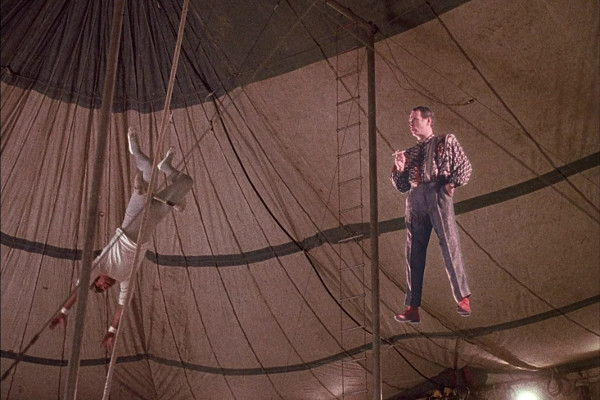
The core drive of Quantum Leap, its modus operandi - Sam leaps in to "put right what once went wrong" - does remove any suspense by its very nature. If Sam has a mission to achieve, then, by definition, he has to succeed to move on to the next leap. This isn't a problem for character-based episodes, where his motives may even change as the leap progresses, but when it's a simple physical feat, it does lead to pedestrian efforts like this one.
Leaping in Without a Net does, as the title suggests, see Sam as a circus performer, having to catch his sister without a safety net. Will he succeed? Or will the sister fall to her death and the series end with Sam stuck forever in the circus? As the answer is strikingly obvious, it requires something more to keep the attention, but that's not on offer here. Instead, the entire plot is hinged around a climax where the outcome is already ordained, causing the prior 40 minutes to seem largely a chore.
There are some decent bits in it... Al withholding information about the leap from Sam as he knew he wouldn't have gone through with it if he'd told him the truth is a good one, as is a circus mystic who can sense the true nature of Sam and Al. (Though while characters being able to tell the true nature of the time travellers is always a nice "bonus", it happens surprisingly frequently around this period, the half dozen episodes before this one including such moments as a child who can see them both as they really are, Sam confessing his identity, or a Native American who has an ambiguous relationship with Sam).
28 writers were credited with the scripts for Quantum Leap (or 33 if you count writers who got story credits but not "teleplay"), the most prolific of which were Deborah Pratt (20 scripts written or co-written), series creator Donald P. Bellasario (16), Paul Brown (13), Tommy Thomson (13) and Chris Ruppenthal (10). Thomson makes his series debut as writer here, though he'd been a story editor from the previous entry, Pool Hall Blues. Thomson also went on to be a producer on the show, though his writing input was variable, including some of the weaker episodes like Blood Moon and Deliver Us From Evil.
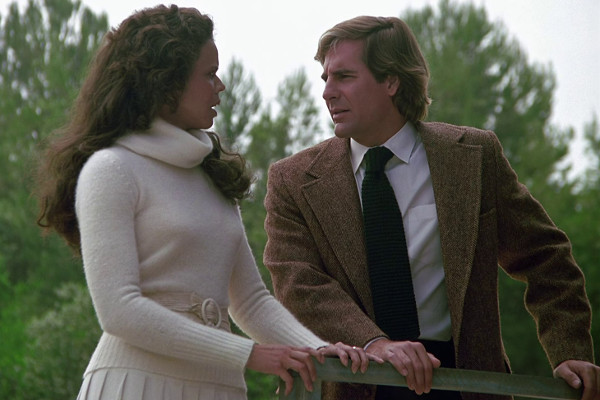
A terribly clichéd "ghost story with a plausible explanation", this is real Scooby Doo stuff, and has the maddeningly predictable ".... But there was a supernatural element after all..." post-coda that all episodes of this nature have.
There's maybe only really two decent bits of this episode... one is that Sam jokes that guest star Carolyn Seymour was a fan of The Twilight Zone (she'd appeared in the revival series four years earlier) and the other is Al's request to the project's Operation Coordinator "Gooshie, centre me on Sam"... only for Sam to be around four feet away.
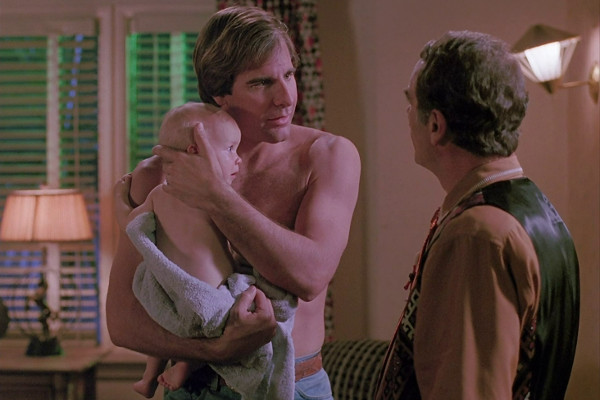
Maybe Baby was the highest-charting episode of season two, reaching the 41st spot on US TV that week. The highest viewing figure for season two was 18.10m for Her Charm (which charted at 48th place that week), and the lowest was 12.90m for A Portrait for Troian. The lowest charting was Blind Faith, which came in at 68th place (13.10m viewers).
For viewers outside the US, the fact that the show was never a major hit in its home country can be something of a surprise. Over here in the UK it attracted healthy viewing figures when screened on a minority channel, and was, proportionately, more of a hit over here than it was in its own country.
Despite the fact that it rarely did well in the ratings, critically it fared far better, including over 30 Emmy nominations throughout its run (with 6 wins) and 7 Golden Globe nominations.... In 1992 Scott Bakula won the Golden Globe for Best Actor, following Dean Stockwell's 1990 Golden Globe win for Best Supporting Actor. Maybe Baby is, sadly, clear evidence of a series that didn't deserve to be in the top 40 of TV that week... while co-writer Julie Brown makes an impression in her starring role, it's very much a by-the-numbers plot, a blue screen cross-country chase that really goes nowhere.
It should also be noted, of course, that Julie Brown is more well-known in America, where she's much more than "sister of Paul Brown", her co-writer for this episode. With multiple writing and acting performances, she's also an accomplished stand up comedienne, and had many releases, including the 1984 EP Goddess in Progress. In 1988 two of the songs from the EP were used in a cult film which Brown co-wrote and appeared in, including the memorable sequence "Cause I'm A Blond": Earth Girls Are Easy.
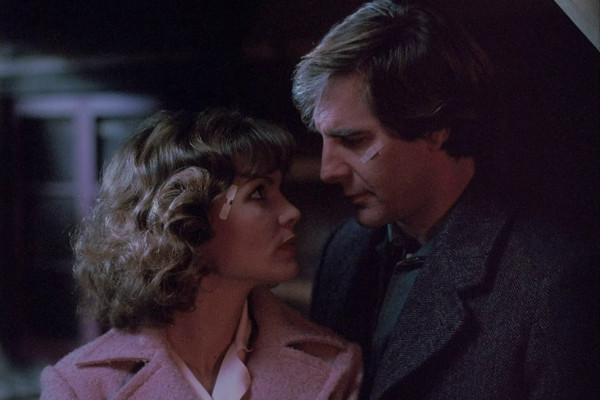
Quantum Leap was, no matter what its strengths, very much a "for all" programme, and crossed generations in its appeal. What this does, unfortunately, mean, is that sometimes the tone of episodes is misjudged as it tries to stick to the middle of the road.
Here Sam plays an FBI agent protecting a witness from being executed in a plot that tries to mix suspense, romance and comedy... all at the same time. It's amiable stuff, but the tension is diluted by it being almost a screwball romance, and the comedy and romance are diluted by them constantly being under threat of death.
There are two nice twists at the end which elevate it somewhat, but this is just average Quantum Leap by any standards. Four separate writers were involved in the creation of this one, and with the unlikely events and confusing motivations - Sam would stop to kiss when he knows a gangster is coming to kill him? The gangster's brother would simply walk away after Sam shoots him dead? - it shows.
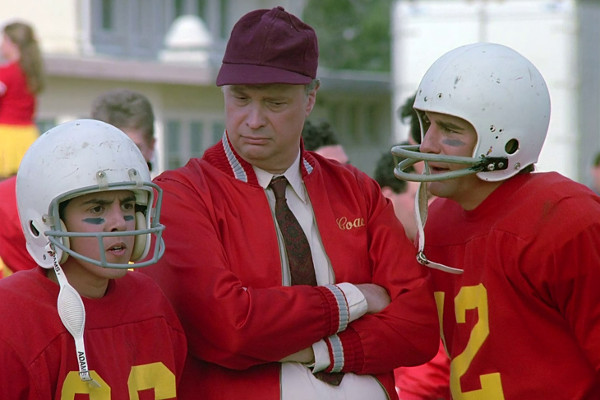
It's curious to wonder how all of Sam's leaps would have reflected upon each other. Here he leaps into a young Mexican who wants his friend's mother to become a legal citizen of the United States.... 48 leaps later and, in season four's It's A Wonderful Leap, Sam unwittingly puts Donald Trump on the road to fortune.
Yet despite some stereotypes (Tequila and La Bamba are on the soundtrack, so don't get loco, señor) this isn't a bad representation of a minority... for the time, at least. The real entertainment value may not translate as well to territories where American Football isn't as well known, and the multiple "easy fixes" at the end can be corny, but this is passable, reasonably likeable stuff.
Although this is very much "bog standard" Quantum Leap with only the racial dynamics to give it some unique identity, Scott Bakula does genuinely appear to be enjoying himself in the episode... as, in fairness, he does most episodes. However, faring less well is Dean, who gets some of the worst lines. His early "Sam, that pass was like a ten dollar hooker. It wasn't pretty, but it got the job done" is perfectly fine, but true anoraks will note it's almost a direct retread of the very first episode's "they've got about as much enthusiasm as a ten dollar hooker".
Worst of all though is probably the most terrible line in the whole series, as Al is questioned for details of their mission, and is forced to say with a straight face: "That kind of data is locked in the human heart." A better showing for Al is when he gives the score of the (then futuristic) Superbowl 30... which turned out to be accurate when it actually happened six years later.
Despite the tremendous image quality on most of the BluRay set (with the episodes being rescanned from the film masters), there are occasions where it's not always a good thing, particularly with darker colours. As the brightness seems to be boosted for the release - which makes you realise just how much effort has gone into the sets and costumes - this does, unfortunately, make some of the darker colours look grainy as it appears minimal noise reduction has been performed. This is particularly evident in this episode, which has a slight "fuzzy" quality throughout.
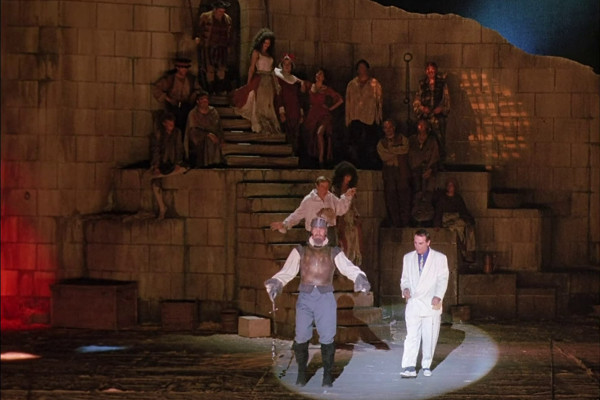
An episode based around the 1965 Broadway musical Man of La Mancha, there is the sneaking suspicion that this one was written just to give Scott Bakula (who had experience in Broadway musicals) chance to sing in the show.
Perhaps one issue with Quantum Leap is that the central character of Sam Beckett is too much of a nice guy to really engender real drama, something only made palatable by the natural charm and likeability of Bakula in the role. However, here a darker side to Sam is given, as he shows genuine spite towards an older actor, after realising he missed his chance with his true love.
Quite where this places his wife Donna is anyone's guess, but such matters are a small backdrop to an episode that isn't really about drama, but about the music. Those unfamiliar with the source may not get as much out of it, though an end credits sequence where cast and crew take a bow is kind of cute.